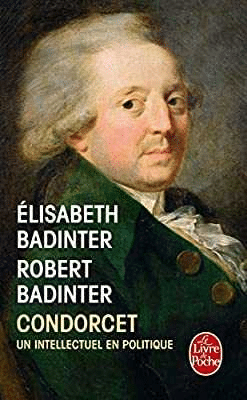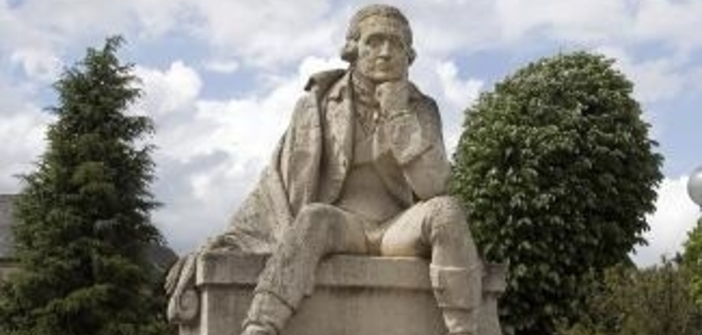A mathematician, philosopher, and academician, the Marquis de Condorcet was privileged when the revolution broke out in 1789. Condorcet was born in 1743 and died in 1794. An Enlightenment man, atheist, friend of philosophers, this is the portrait of an honest man, as people of the Third Republic might have said about him.
This portrait, the biography of the public man, the private man, his childhood, his adolescence, his studies, his family are what the authors unveil to us. We enter the homes of his friends, into the salons where everything is decided. The king loses his authority; he has little after 1789 and is going to be stripped of what little he has left.

Elisabeth and Robert Badinter illustrate this period of the years of the Ancien Régime, the constitutional monarchy, the betrayals within the king’s entourage. The personal quarrels among politicians. It is both a biography, a history book, and in a certain way, Condorcet’s intimate diary.
There are numerous excerpts from his letters, his correspondence, his exchanges with d’Alembert, Turgot, his adversaries, the deputies, the convention, and his tragic end in 1794. Condorcet wanted to apply intellectual reasoning to politics, which was impossible between a man with an analytical mind and political activity where the aim was rather to destroy or even kill his adversaries.
This work is a beautiful depiction of this troubled and violent period. It revisits philosophical theses between Rousseau and Voltaire, a fine debate on liberty and equality.



